Climate change causes erratic weather changes, including in Indonesia. In fact, over the past five years, Indonesia has experienced a long dry season that has made the rainy season retreat.
Indonesia only has two seasons: the dry season and the rainy season. The dry season usually occurs at the end of January to May, while the rainy season will occur in September until the turn of the year. The transition season between the dry season and the rainy season in Indonesia is called ‘pancaroba’ season.
With uncertain season changes, how trusting are Indonesians in the weather forecast? Let’s see from the survey Licorice has done!
Survey period: March 15, 2018 – September 15, 2018
Respondents: 500 Indonesian men and women aged between 10-59 years old
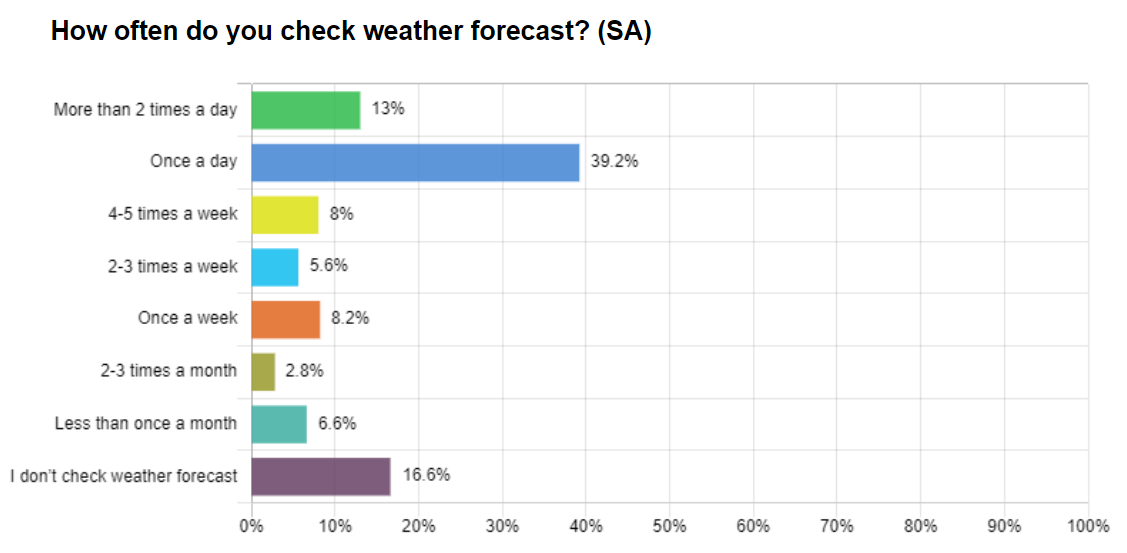 Based on the survey, the Indonesian people will at least check the weather forecast once a day. Although, there is also 16.6 percent of respondents who claimed to have never checked the weather forecast.
Based on the survey, the Indonesian people will at least check the weather forecast once a day. Although, there is also 16.6 percent of respondents who claimed to have never checked the weather forecast.
In Indonesia, the weather forecast is usually issued by the Meteorology, Climatology, and Geophysics Agency (BMKG). In addition to predicting rainfall, BMKG is also tasked with giving early warnings when earthquakes, tsunamis, and hurricanes occur.
According to the Head of BMKG Dwikorita Karnawati, weather forecasting in Indonesia is not easy. Because Indonesia is an archipelago located on the equator, because of this, Indonesia is a country that has a higher level of complexity and uncertainty in weather than other countries. Atmospheric and climate phenomena in Indonesia are also very complex.
Geographically, Indonesia is also flanked by two of the largest oceans in the world, namely the Pacific Ocean and the Indian Ocean. The phenomenon of interaction between the sea and the atmosphere in both oceans also makes the weather in Indonesia even more difficult to predict.
At present, BMKG does not only use the Global Forecast System (GFS) rain prediction modeling produced by the United States National Center for Environmental Prediction (NCEP). Data from the GFS was then re-analyzed using observational data by BMKG from the Himawari Satellite and 40 weather radars belonging to Indonesia.
Even so, the weather forecast in Indonesia still cannot be 100 percent accurate. At present, BMKG is only able to provide precision up to 3 square kilometers with an accuracy of 80-85 percent within three days to 3 hours before the incident.
Although they often miss, Indonesians will still open the weather forecast to find out the weather today or tomorrow. Based on the survey, 98.6 percent of respondents will check the weather forecast before leaving.
When do Indonesians check the weather forecast?
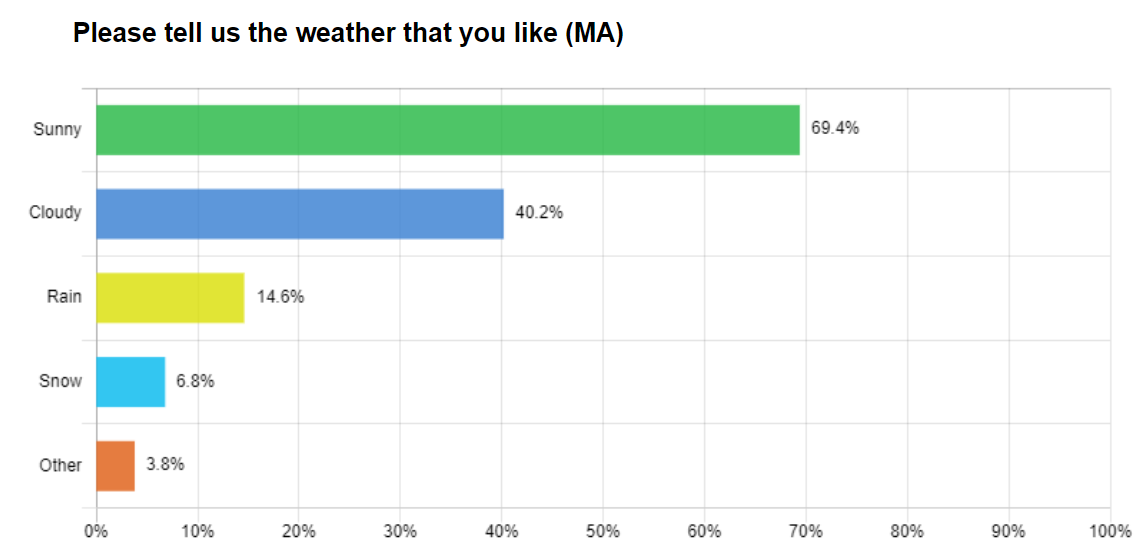 Indonesians tend not to like rain too much. Based on the survey, 69.4 percent of respondents prefer sunny weather, and another 40.2 percent prefer cloudy weather— only 14.6 percent like rain.
Indonesians tend not to like rain too much. Based on the survey, 69.4 percent of respondents prefer sunny weather, and another 40.2 percent prefer cloudy weather— only 14.6 percent like rain.
Actually, this is not without reason. In Indonesia, when the rainy season arrives, there will be many natural disasters and diseases that arise.
One of the most common diseases that occur during the rainy season is influenza. Although, for Indonesians, flu is not a severe disease and can be cured only by resting, drinking hot tea, and consuming herbal medicine.
In addition to influenza, when the rainy season arrives, the number of dengue and typhoid fever patients will also increase. Both of these diseases are one of the highest causes of death in Indonesia.
When the rainy season arrives, some areas in Indonesia are also threatened by floods, landslides, and tornados. In the capital city of Jakarta alone, the problem of flooding is a disaster that routinely occurs every year.
While in mountainous areas, especially in Java Island, landslides are the most feared disaster during the rainy season. As for the tornado, it usually occurs in coastal areas.
Not to mention, when it rains, people will be lazier to leave the house. In Indonesia, there is even one famous phrase when heavy rainfalls: “When heavy rainfalls, it is most comfortable to lied in a room, blanket, while eating warm soup noodles.”
But, the dry season does not mean free from disaster. In Indonesia, when the dry season arrives, forest and land fires will usually occur. These forest and land fires typically happen on the island of Sumatra and Kalimantan, which borders Malaysia and Singapore.
Forest fires are also frequent in mountain areas. Usually, when the forest fire season arrives, hiking trails in some mountains will be closed to tourists.
However, now, it can rain anytime. For fear of the rain falling, Indonesians will likely see the weather forecast every day, especially before they leave the house.
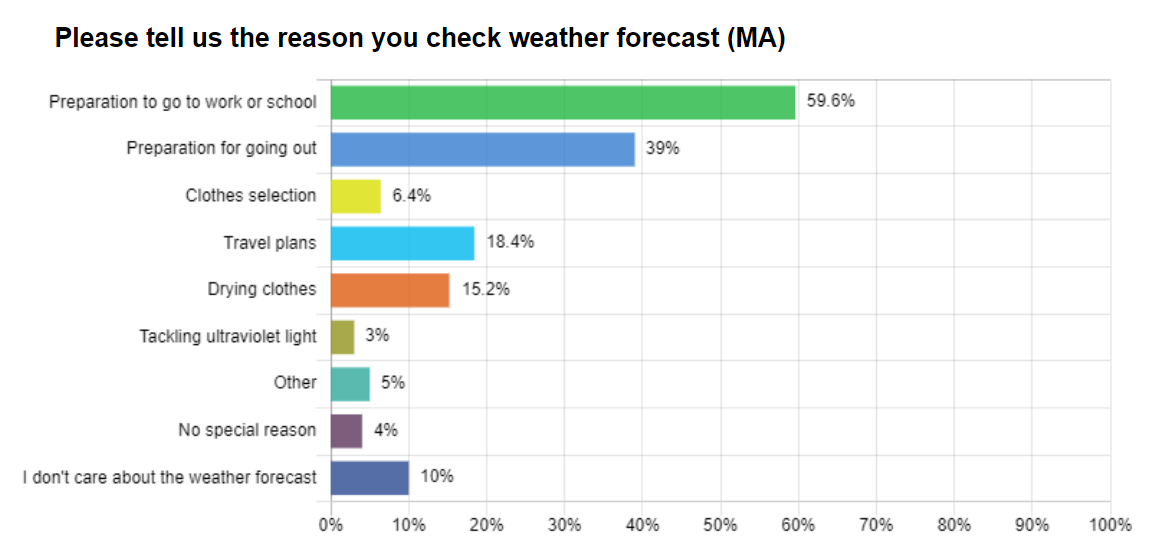
Speaking of worrying that rain will fall, before holding an event in the rainy season, Indonesians have a unique habit. They will usually recruit a ‘rain handler’ who is believed to have the ability to ‘move the rain elsewhere.’ Another unique tradition that is believed to ‘chase away’ the rain is throwing underpants onto the roof of the house before the event begins.
BMKG has several ways to broadcast the weather forecast. For example, through their Twitter account and BMKG application that can be downloaded on their respective smartphones.
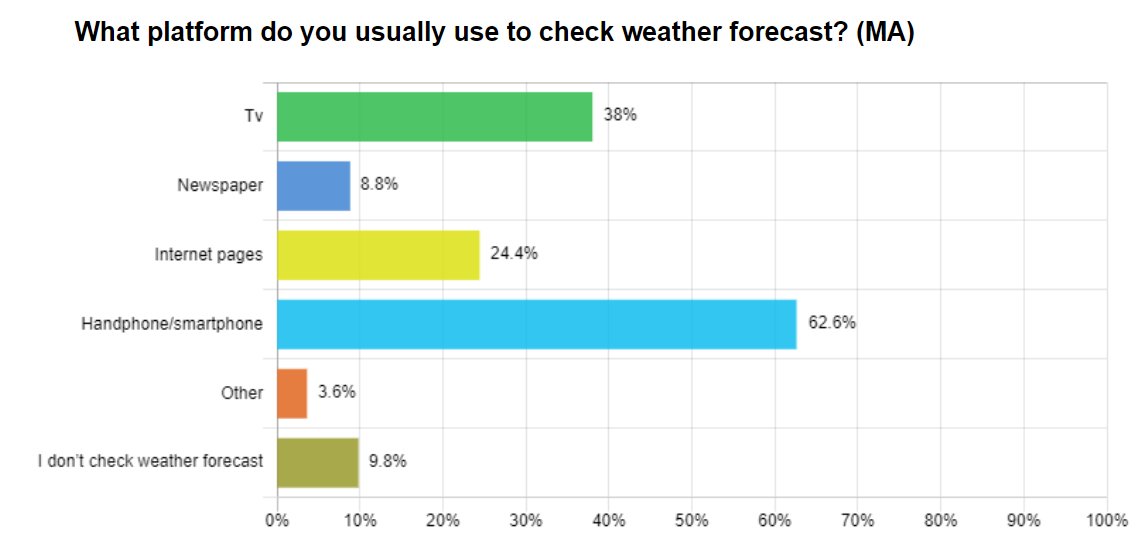 With this convenience, 62.8 percent of Indonesian people will check the weather forecast from their smartphone. The majority of Indonesian people also have a weather forecast application on their phone.
With this convenience, 62.8 percent of Indonesian people will check the weather forecast from their smartphone. The majority of Indonesian people also have a weather forecast application on their phone.
While the other 38 percent will check the weather forecast from TV, when the weather becomes more uncertain, usually the media in Indonesia will broadcast the weather forecast from BMKG., Especially when the rainy season arrives.
In conclusion, for Indonesians, weather forecasting is essential. They will usually check the weather forecast every day, especially before leaving.
Indonesians also prefer sunny weather. Because, when it rains, usually there will be many disasters and diseases that arise.



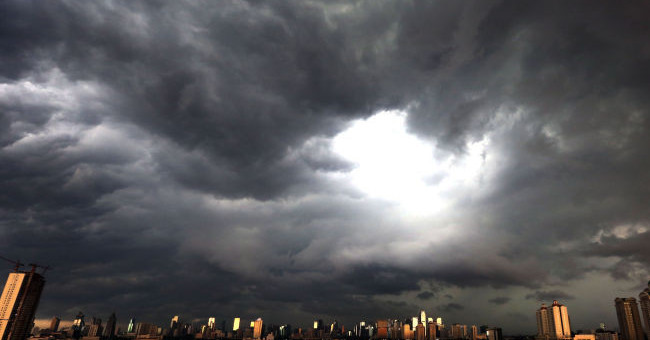













No comments yet.